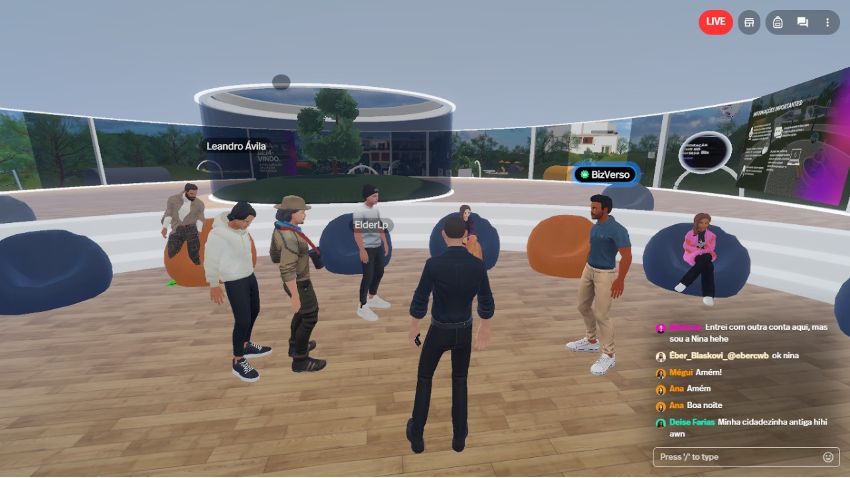Trailblazing move is the first of several planned initiatives in the virtual world.

A trailblazing step in digital evangelization took place on November 17, as the Seventh-day Adventist Church in the South American Division launched a church option in the metaverse. Pastors and members of the Adventist community from several Brazilian states and countries attended the ceremony. According to organizers, in its first hours, the space received more than 800 visits.
For the organizers, this launch represents a significant milestone at the intersection of faith and digital technology, something with the potential to extend the church’s reach beyond its physical borders.
A Connected Global Community
The Adventist space in the metaverse offers an immersive experience for people from all over the world. With the use of custom avatars, anyone can participate in worship services, Bible studies, and community activities in a three-dimensional virtual environment. “This initiative puts the Adventist Church at the forefront of religious adaptation to new technologies,” said Carlos Magalhães, director of digital strategies for the South American Division.
Since 2021, the church has been conducting experiments with prayer and Bible study groups on various metaverse platforms. Based on the successes of the first initiatives, church leaders decided to inaugurate their own and broader space. Pathfinders and Adventurers, the Adventist Development and Relief Agency (ADRA), Feliz7Play, Adventist Education, and other ministries are among the action areas available within the South American Division’s metaverse.
According to Magalhães, one of the church’s main goals within the metaverse is to increase accessibility. People with physical limitations now have the chance, for example, to participate actively. Additionally, the church is committed to making the platform as inclusive and accessible as possible.
Community Feedback
The response to the church’s space in the metaverse has been largely positive. Many members have shared their excitement for the opportunity to explore their faith in an innovative way and have also used the space to create their own study and prayer meetings.
According to Magalhães, “this initiative has also created doubts in some members, who fear the risks of the virtual world.” And he added, “as with any technology, there is a risk of misuse and, therefore, the church seeks to explain that its presence in the metaverse is not a replacement for the experience of physical churches, but just another way to connect people and share the gospel to more digitally-driven generations.”
The launch is considered to be just the beginning of a growing trend of virtual religious experiences, regional church leaders said. The church plans to expand its activities in the metaverse, including educational programs and community events.
The original version of this story was posted on the South American Division Portuguese-language news site.









